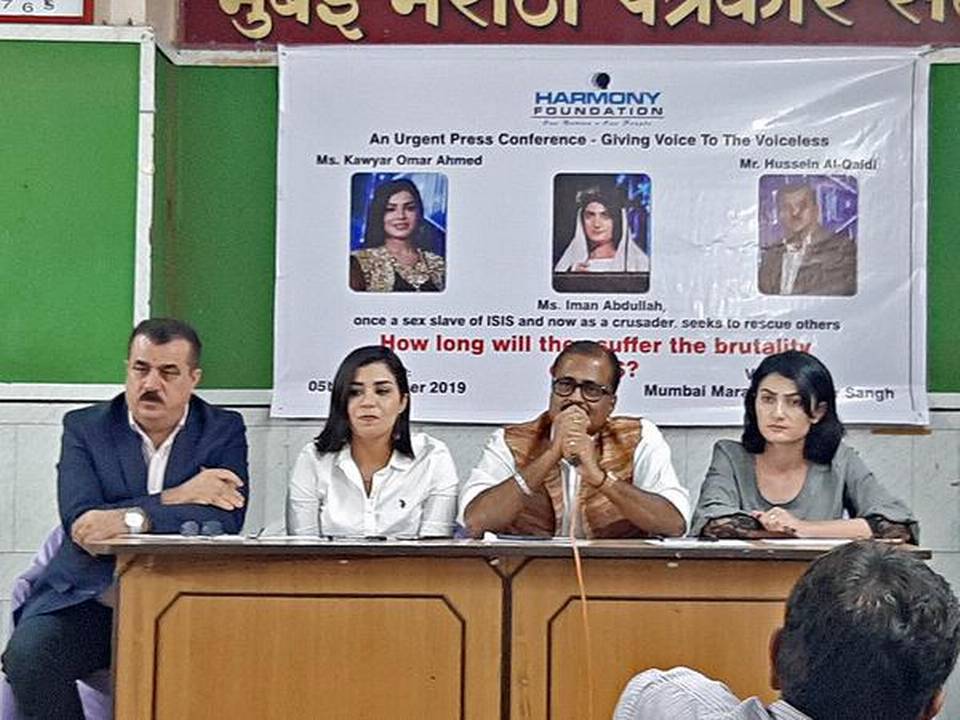
Kurdish government officials unhappy with U.S. decision to withdraw troops from Syrian border areas
U.S. President Donald Trump’s decision to withdraw forces from the Syrian border areas last month allowed Turkey to launch an offensive on Kurdish fighters. Around 2,00,000 people have been displaced since Turkey began its offensive on October 9. The Kurds have since turned to Russia and the Syrian government in Damascus for protection.
On Tuesday, officials from the Kurdish government expressed discontent at the withdrawal of U.S. troops at a press conference organised by Harmony Foundation in the city. Hussein Al-Qaidi, director, Office for Rescue of Yazidis, spoke about the plight of his community since the rise of the Islamic State (IS) in 2014. Mr. Al-Qaidi had arrived in Mumbai last week to receive the Mother Teresa award, which was conferred on him for rescuing hundreds of women from the clutches of the IS
Mr. Al-Qaidi said, “The August of 2014 was a nightmare for us. Around 750 children were orphaned and another 3,500 were kidnapped and trained in Islamic law schools. The IS forces brainwashed them and trained them to carry out explosions and terrorist attacks in the name of Islam.”
According the Kurdistan government, since 2014, nearly 6,400 Kurds, including 11,93 women, have been kidnapped and tortured. Though the government has been carrying out rescue operations, 2,900 Kurds still remain in captivity, most of them under the age of 18. Mr. Al-Qaidi’s efforts have so far led to the rescue of 3,500 Yazidis, of which over 1,800 were children.
Iman Abdullah, a former sex slave of the IS, spoke about the tragedy of being a woman in the region. Ms. Abdullah had accompanied Mr. Al-Qaidi on his trip to Mumbai. Ms. Abdullah, who was rescued by Mr. Al-Qaidi in 2015, said, “I was 13 years old when they kidnapped me. I was raped repeatedly and sold thrice among the IS personnel. They have a public market where they sell Yazidi women and force them to convert.”
Mr. Al-Qaidi also highlighted the deteriorating situation in Sinjar, considered a holy land by the Kurds. Sinjar is a province located in northwestern Iraq, which has now been declared a military zone. At least 64 militias targeted the region in 2017. Sinjar is now empty and its residents have been recognised as internally displaced persons. They are now spread across 17 refugee camps, according to Kawyar Omar Ahmed, a representative of the Kurdish government.
Mr. Al-Qaidi said, “We want to garner the attention of international NGOs and world organisations like the United Nations. We want them to help us rehabilitate all those who have been displaced from their homes.”
Dr. Abraham Mathai, founder of Harmony Foundation, said, “The Yazidis fear that the IS terrorists who have been released recently will attack them again. It is indeed a great threat and real danger to not only the region but also to international peace and security.”
